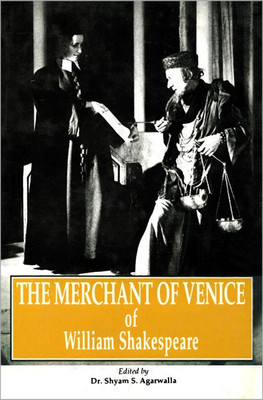The Merchant of Venice of William Shakespeare(English, Hardcover, Agarwalla S. S.)
Quick Overview
Product Price Comparison
The Merchant of Venice bases its dramatic logic on the New Testament premise that you get what you give, and the playŌĆÖs consistent enactment of this looking-glass logic creates a world in which mirroring is a major internal principle of order. The Indian philosophy, distilled in our Vedas, Puranas and Epics, speaks in almost the same vein. Shylock is cunning, cruel and implacable. For centuries, the Shylocks of India, in various garbs, have tried and succeeded partially, to get their pounds of flesh from their victims. Usury was condemned in the Elizabethan period but we, in India, still nourish it. Secondly, ShylockŌĆÖs sense of Jessica is anti-human as well as antisocial. He is aware of her as of an item of inventory, as many father, in India, do with their daughters. Bassanio must have learnt from ShylockŌĆÖs example: a wrong, even a small one, is always a wrong and calls forth its own punishment automatically, for, as we shall see, in Dr. AgarwallaŌĆÖs interpretation of the play, the law sleeps only until unoffended, when it reacts by reflecting the offence in kind. The law has no power to make anyone choose to do right, it can only punish those who do wrong. The Prince of Morocco, like any prince of yester-years, in India, is chivalrous, amorous, gracious and sexually virile. It was unkind of Portia to say uncomplimentary words for him but she, like white-skinned ladies, have always done so in the past and are doing it, at present. Thus The Merchant of Venice is as much relevant to Indians as it was and is to the English and to the World, in general. Dr. Shyam S. Agarwalla gives a new approach, a new presentation and a new direction to the reading and critical analysis of the play. At times, his critical examination of the play is unconventional, provocative but nonetheless educative. That marks him off from other Indian editors of The Merchant.


